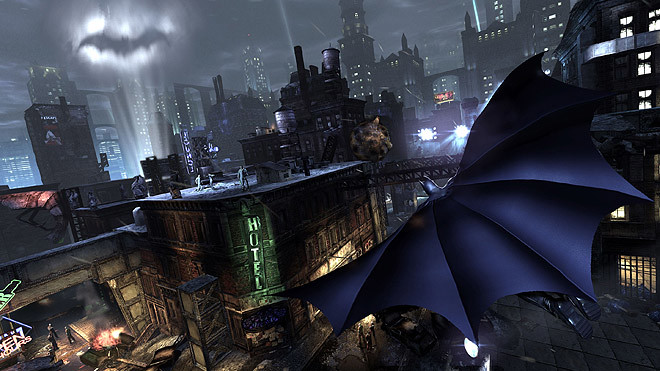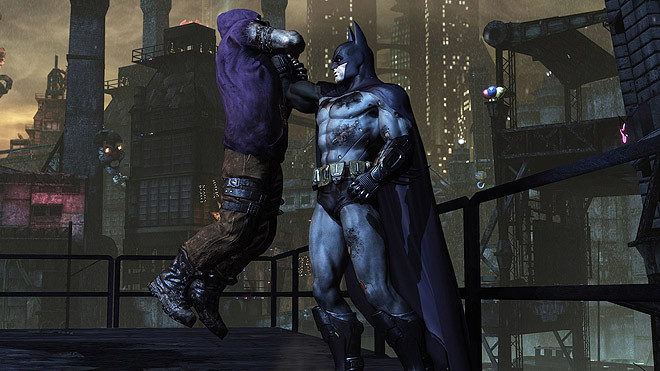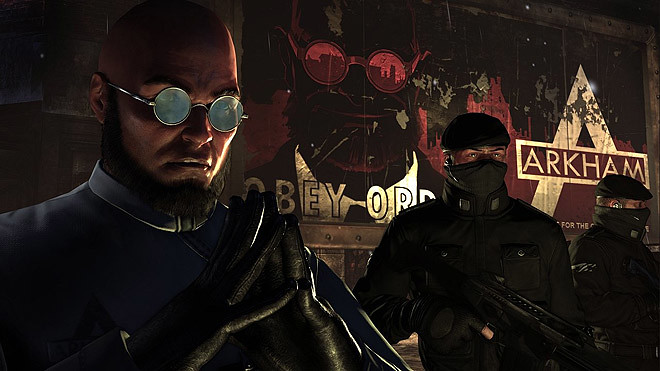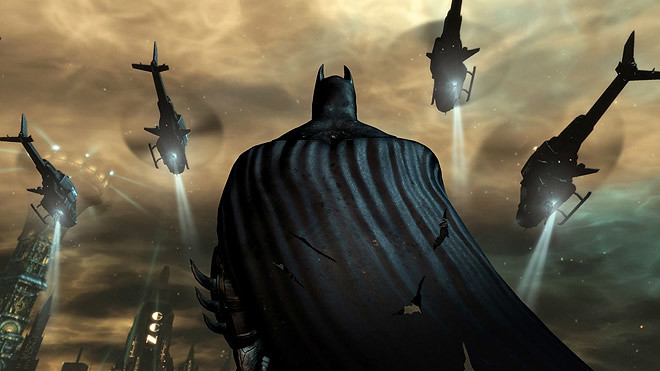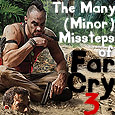
I was arrogant when I started Demon's Souls. I ignored the warnings of those who had come before me and pranced through the first level without dying once, laughing in the face of man and God alike.
But check the dates of my trophies and you'll see a pretty clear story being told: My arrogance lasted about a month and a half before I finally got stuck and quit until eight months later when an insomnia-driven decision at 4 a.m. got me back in. I overcame my roadblock, fell asleep, then woke up and burned through the rest the game in one ridiculous 11-hour stretch — impressive, but it still took me nine months to beat Demon's Souls.
It took me two weeks to beat Dark Souls.
It took me one week to beat Dark Souls a second time.
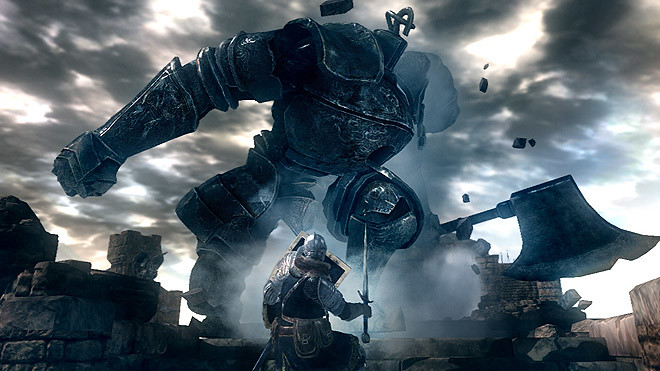
Instead of holding your hand and gently introducing you to their worlds, the Souls games prefer to spend their opening few hours breaking you down to see how much you can take. They kill you in their tutorials, pit you against impossible odds from the start, and happily display ominous messages left on the ground from other players that range from desperate pleas for help to crushing admittances of defeat, like "I can't take this..." Even the back of the Dark Souls box warns you in bold lettering, "Prepare to Die."
To new players already struggling to make sense of the cruel, violent world they've entered, it just seems sadistic. But veteran players know exactly why this suffering is necessary.
You need to die in the tutorial because it's the most valuable lesson you'll get: death is not failure here. You are trapped in a purgatory, sentenced to live and die and be reborn again and again until you have fulfilled your duty. Death is simply part of the experience.
They kill you in the tutorial because you have to learn to let go. In the opening few hours, you'll be scrounging for souls like a man in a desert scrounges for water. Souls are everything here: you'll buy items, repair equipment, and upgrade your character all with souls. They are your lifeblood. And when you die, you'll leave a bloodstain on the ground with all your souls in it; die on the way back to your bloodstain, however, and they'll be lost forever.
The psychological effect of this system is staggering. Carry a lot of souls and you'll tiptoe through the environment, terrified of anything that could pose the slightest threat—those souls aren't just your in-game currency; they are digital representations of your time. Lose them and you won't just be depriving your character of another upgrade point, but you'll have nullified hours of your life, too. The sheer anxiety of trying to make it back to your bloodstain without dying is often enough to get you to make a mistake and die. On the other hand, if you don't have any souls on you, you don't have anything to lose, either. Suddenly, dying is of no consequence. You can play recklessly, try to tackle bosses you'd normally be too scared to fight, or just push forward into the unknown.
That's why it's so important to learn to let go. Early on, every soul is precious, but later in the game and in subsequent playthroughs, when the cost of leveling up is so high that you'll only be able to upgrade after boss fights, you simply won't care about the absurd amount of souls you just lost. You'll be free.
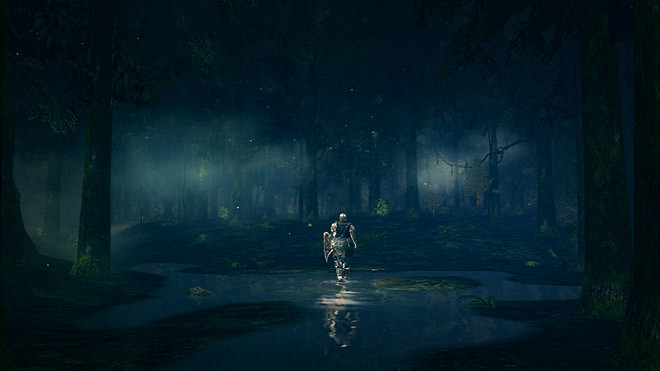
The world of Dark Souls is organic and seamless, one area flowing into the next and wrapping back around again. It's easy to find yourself stuck in one area for hours, respawning in the same spot over and over every time you die, so whenever you finally break out just enough to unlock a shortcut between areas, it's enormously satisfying.
You're never given a map, but you also won't ever need one, either. If you've already been to an area, it won't be long until you've completely memorized every inch of it, and if you haven't, not knowing where you're going or what you'll find when you get there is half the fun.
That mentality extends to the basic mechanics of the game as well. The game will tell you what each button does, but that's about it. From that point on, you're on your own. Figuring out what, exactly, a "bonfire" does, or what "humanity" is used for, or what the benefits are to joining the different "covenants" is left entirely up to you. If it sounds like I'm skirting around describing these in detail, it's because I am. As far as I'm concerned, those are the real spoilers in Dark Souls.
You need to die in the tutorial because it's the most valuable lesson you'll get: death is not failure here.
And that's why community plays such an essential role. Messages left by other players can guide you along, warning of ambushes and pointing you in the right direction, or they can lead you into a trap. You can willingly summon other players into your game to help you out, but they can also forcibly invade your game to kill you for profit. If you're invaded, the game will lock you in an area until either you or the invader is dead. Normally, you'll get a notification warning you of the invasion, but sometimes, you'll just notice that you've been locked in before the game has had a chance to notify you, and a brief moment of confusion will turn into a grim realization.
I summoned friendly players into my game whenever I could; every single experience is memorable in some way. The game has intentionally limited communication options between players, which forces everyone to get creative. Even without text or voice chat, players still found ways to convey complex ideas to me like "keep your shield up in this area" or "oh, God, we're in way over our heads. Run!" Bonds are formed and broken in minutes—some of the strongest I've ever felt in a multiplayer game—and all with players I never directly spoke to or even knew the names of.
The odds you're stacked up against in Dark Souls often feel impossible, like the game's not playing fair, and that's the genius of it. It's a multiplayer game that never really feels like it was built for more than one person, so when you band together with other players, you feel like you're somehow subverting the game's harsh rules. You feel like you're cheating against an enemy that absolutely cheats against you every chance it gets. It's beyond cathartic.
The game also plays a Lucifer role, tempting the community to turn on each other by offering rewards for those who successfully invade and kill other players. When you meet one of these red phantom traitors, it's exhilarating and terrifying. You'll circle each other in a slow, charged dance, swords at the ready, each waiting for the other to blink. Since most players who invade have already beaten the game at least once and are at a pretty high level, your chances of surviving an encounter are going to be pretty slim for a long time. But the first time you successfully fend one off is an intoxicating moment.

An early objective is to ring a bell in a church tower. If you're in the area, whenever another player rings the bell in their game, you can hear it in yours; even when you're not directly interacting with other players, their presence is always felt, reminding you that you are all in this together. Their ghostly apparitions flicker in and out of your game. Their words of wisdom or deceit are scattered throughout the world. Their bloodstains litter the ground, recordings of the tragic last few moments of their life. Learn from them, and mourn the fallen.
It can feel impenetrable at times, but keep going; there's a moment in each of these games that every player who sticks with it long enough will experience, when everything clicks into place and they finally understand. When that actually happens, though, is different for everyone—it took me nine months to truly understand Demon's Souls.
Dark Souls is most often defined by its relentless difficulty, but there's genuine meaning to it. The game itself plays the role of a grand antagonist, pushing you to fight harder and form a community to rise up against it. You'll need real patience and persistence  if you want to succeed here, but if you can, it's one of the most rewarding experiences you'll ever have with a video game.
if you want to succeed here, but if you can, it's one of the most rewarding experiences you'll ever have with a video game.
Dark Souls / $59.99 / PS3 [reviewed], 360
 Tweet
Tweet 



